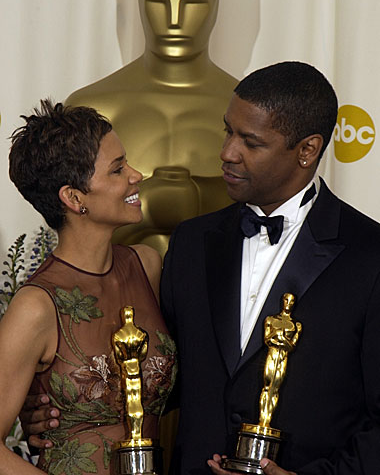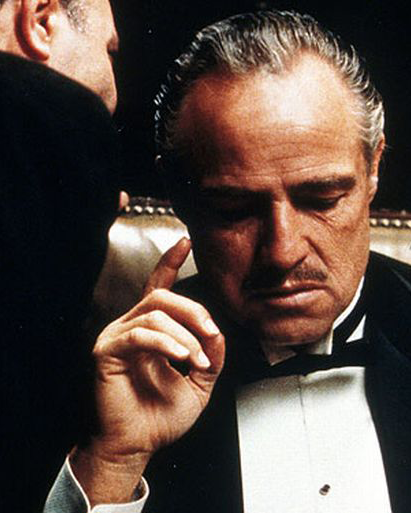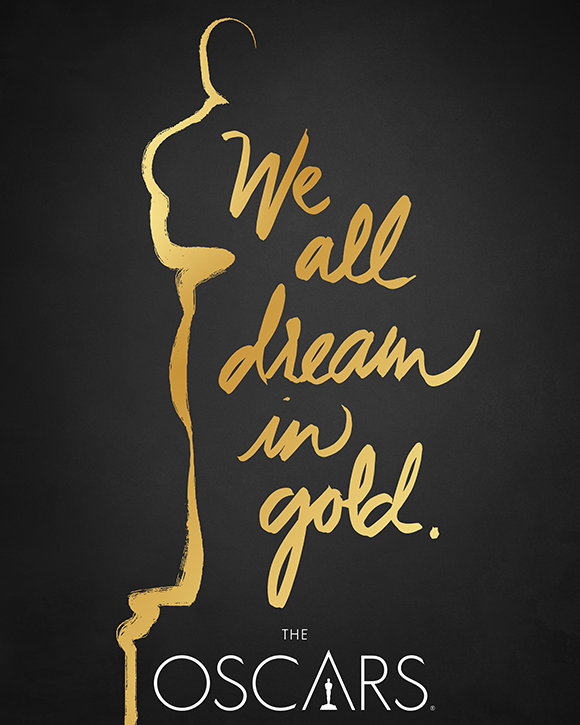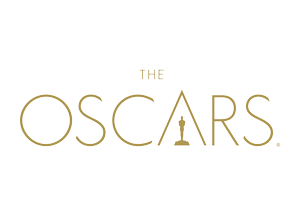
Halle Berry and Denzel Washington (Don Kelsen / Los Angeles Times)

Best Supporting Actress in “12 Years a Slave” Lupita Nyong’o poses backstage with her Oscar at the Dolby Theatre in Hollywood, CA, March 2, 2014.

Marlon Brando refused his award for Best Actor for 1972's The Godfather, citing the film industry's discrimination and mistreatment of Native Americans.

The 2016 Oscar campaign illustrates the emotional power of movies and their ability to inspire all of us to achieve our dreams.
Criticism
Accusations of commericalism
Due to the positive exposure and prestige of the Academy Awards, studios spend millions of dollars and hire publicists specifically to promote their films during what is typically called the "Oscar season". This has generated accusations of the Academy Awards being influenced more by marketing than quality. William Friedkin, an Academy Award-winning film director and former producer of the ceremony, expressed this sentiment at a conference in New York in 2009, describing it as "the greatest promotion scheme that any industry ever devised for itself".
Tim Dirks, editor of AMC's filmsite.org, has written of the Academy Awards, Unfortunately, the critical worth, artistic vision, cultural influence and innovative qualities of many films are not given the same voting weight. Especially since the 1980s, moneymaking "formula-made" blockbusters with glossy production values have often been crowd-pleasing titans (and Best Picture winners), but they haven't necessarily been great films with depth or critical acclaim by any measure.
Accusations of bias
Typical criticism of the Academy Awards for Best Picture is that among the winners and nominees there is an over-representation of romantic historical epics, biographical dramas, romantic dramedies, and family melodramas, most of which are released in the U.S. the last three months of the calendar year. The Oscars have been infamously known for selecting specific genres of movies to be awarded. This has led to the coining of the term 'Oscar bait', describing such movies. This has led at times to more specific criticisms that the Academy is disconnected from the audience, e.g. by favoring 'Oscar bait' over audience favorites, or favoring historical melodramas over critically acclaimed movies that depict current life issues.
Lack of Diversity
The 88th awards ceremony became the target of a boycott, based on critics' perception that its all-white acting nominee list reflected bias. In response, the Academy initiated "historic" changes in membership by the year 2020.
Symbolism or sentimentalization
Acting prizes in certain years have been criticized for not recognizing superior performances so much as being awarded for sentimental reasons, personal popularity, atonement for past mistakes, or presented as a "career honor" to recognize a distinguished nominee's entire body of work
Refusing the award
Some winners critical of the Academy Awards have boycotted the ceremonies and refused to accept their Oscars. The first to do so was Dudley Nichols (Best Writing in 1935 for The Informer). Nichols boycotted the 8th Academy Awards ceremony because of conflicts between the Academy and the Writers' Guild. George C. Scott became the second person to refuse his award (Best Actor in 1970 for Patton) at the 43rd Academy Awards ceremony. Scott described it as a 'meat parade', saying 'I don't want any part of it." The third was Marlon Brando, who refused his award (Best Actor for 1972's The Godfather), citing the film industry's discrimination and mistreatment of Native Americans. At the 45th Academy Awards ceremony, Brando sent Sacheen Littlefeather to read a 15-page speech detailing his criticisms.

